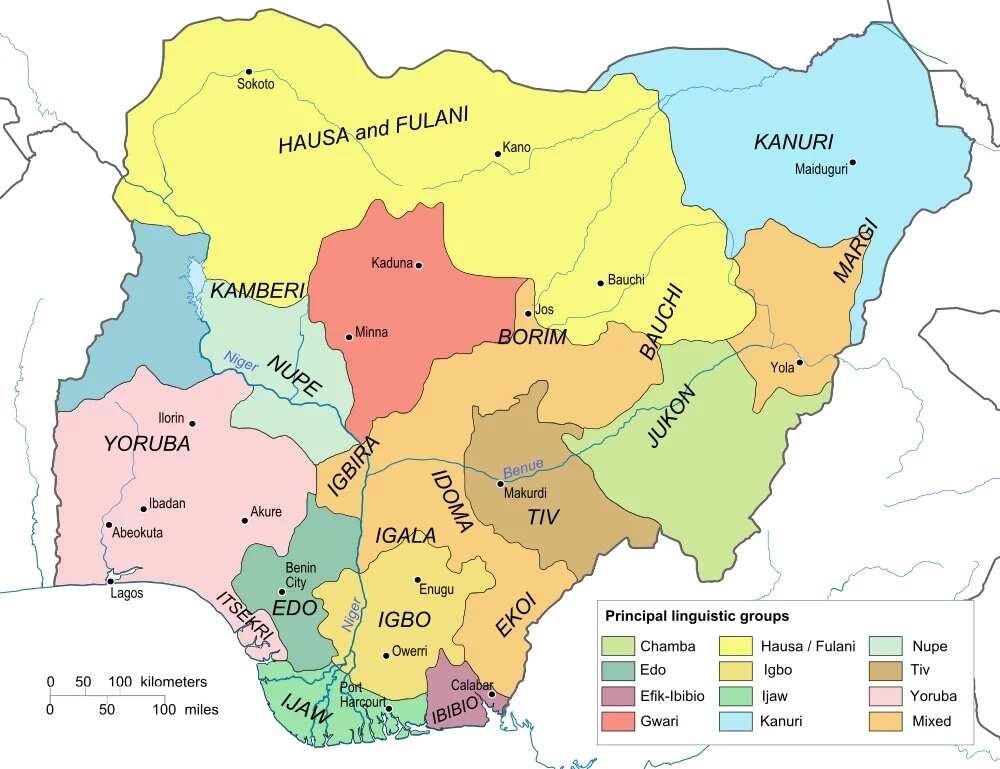Exploring Nigeria's Diverse Tribes And Cultures
What defines a nation? Is it the lines on a map, the language spoken, or perhaps the shared history? In Nigeria, it's the vibrant tapestry of ethnicities, a mosaic of cultures woven together, that truly defines the nation's identity. This intricate web of traditions, languages, and customs, while complex, forms the very heart of what it means to be Nigerian.
Nigeria, a land of immense diversity, is home to over 250 distinct ethnic groups, each contributing to the rich cultural landscape. While pinpointing the exact number of tribes remains a subject of ongoing anthropological study, estimates range upwards of 371, showcasing the sheer depth and breadth of Nigeria's cultural heritage. This diversity is not merely a statistic; it's a living, breathing testament to the enduring power of tradition and the resilience of cultural identity in the face of modernization.
| Ethnic Group | Region | Language | Notable Characteristics |
|---|---|---|---|
| Hausa | Northern Nigeria | Hausa | Predominantly Muslim, known for their elaborate traditional attire and a rich history of scholarship and trade. |
| Yoruba | Southwestern Nigeria | Yoruba | Known for their vibrant artistic traditions, including intricate wood carvings, and a strong emphasis on oral history and storytelling. |
| Igbo | Southeastern Nigeria | Igbo | Recognized for their entrepreneurial spirit and a strong sense of community, with a vibrant tradition of music and dance. |
| Fulani | Widespread, primarily Northern Nigeria | Fula | Traditionally nomadic pastoralists, known for their cattle herding practices and distinctive cultural identity. |
| Kanuri | Northeastern Nigeria | Kanuri | With a history dating back to the Kanem-Bornu Empire, the Kanuri people have a rich cultural heritage influenced by Islamic scholarship and trade. |
Learn more about Nigerian ethnic groups
The three largest ethnic groups the Hausa, Yoruba, and Igbo often dominate the narrative, representing a significant portion of the population. The Hausa, primarily located in the north, have a long history intertwined with Islamic scholarship and trade. Their vibrant markets, bustling cities, and elaborate traditional attire reflect a culture deeply rooted in tradition. The Yoruba, concentrated in the southwest, are renowned for their artistic prowess, evident in their intricate wood carvings, vibrant festivals, and rich oral traditions. The Igbo, predominantly in the southeast, are recognized for their entrepreneurial drive and strong communal ties. Their vibrant music, masquerades, and artistic expressions reflect a dynamic and resilient culture.
Beyond these dominant groups lies a fascinating tapestry of smaller, yet equally significant, ethnicities. The Fulani, traditionally nomadic pastoralists, traverse the landscape with their herds, their culture interwoven with the rhythms of nature. The Ijaw, inhabiting the Niger Delta region, have a deep connection to the waterways and a rich history of resistance. The Tiv, known for their agricultural practices and intricate social structures, contribute significantly to the nation's food security. The Kanuri, descendants of the powerful Kanem-Bornu Empire, maintain a distinct cultural identity shaped by centuries of history. These are but a few examples of the diverse ethnicities that contribute to the vibrant mosaic of Nigerian culture.
The linguistic diversity within Nigeria is equally remarkable. With over 500 languages spoken, Nigeria stands as a testament to the enduring power of communication and the intricate relationship between language and culture. While English serves as the official language, a legacy of British colonial rule, the multitude of indigenous languages serves as a powerful reminder of the nation's rich and varied heritage. Each language carries within it a unique perspective, a distinct way of understanding the world, and a vital link to ancestral traditions.
The cultural richness of Nigeria extends beyond language and ethnicity. Religious beliefs, culinary traditions, artistic expressions, and social customs vary widely across the country. From the Islamic traditions of the north to the Christian and traditional religious practices in the south, Nigeria's religious landscape reflects the nation's diverse heritage. The culinary scene, a tantalizing blend of flavors and ingredients, offers a sensory journey through the different regions. Artistic expressions, ranging from music and dance to pottery and textiles, showcase the creativity and ingenuity of the Nigerian people.
Nigeria's cultural diversity, while a source of strength, also presents unique challenges. The complexities of managing such a diverse population require sensitivity, understanding, and a commitment to unity in the face of difference. The ongoing dialogue surrounding resource allocation, political representation, and cultural preservation underscores the importance of fostering intercultural understanding and promoting a shared sense of national identity.
Nigeria's journey as a nation is inextricably linked to its ethnic diversity. The ongoing process of navigating the complexities of this diversity is a testament to the resilience and adaptability of the Nigerian people. As Nigeria continues to evolve, its diverse cultural heritage will undoubtedly play a pivotal role in shaping its future. This diversity is not simply a characteristic of Nigeria; it is the very essence of its identity, a vibrant tapestry woven from the threads of countless traditions, languages, and customs. It is this diversity that makes Nigeria the dynamic and captivating nation it is today.


Detail Author:
- Name : Lacy Harris DVM
- Email : hirthe.merl@gmail.com
- Birthdate : 1974-12-16
- Address : 1669 Satterfield Light Lake Raquelfurt, WV 94961-2145
- Phone : 1-539-376-1993
- Company : Goyette LLC
- Job : Agricultural Science Technician
- Bio : Sed ea aut natus numquam incidunt cum modi. Veniam ea animi impedit eligendi et.